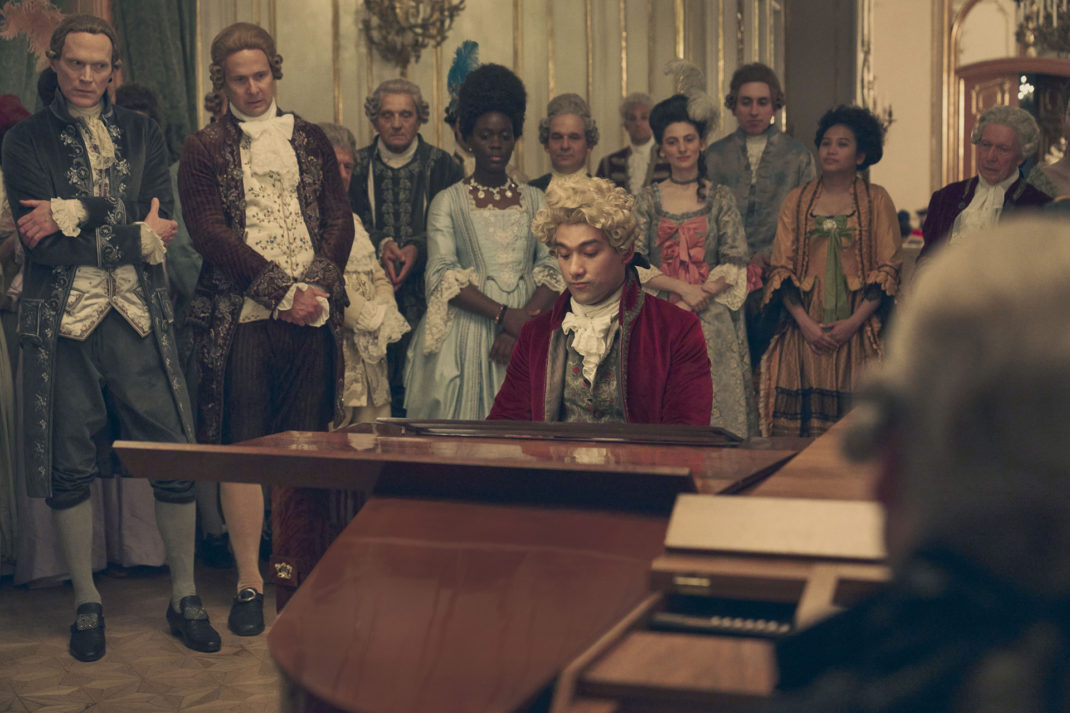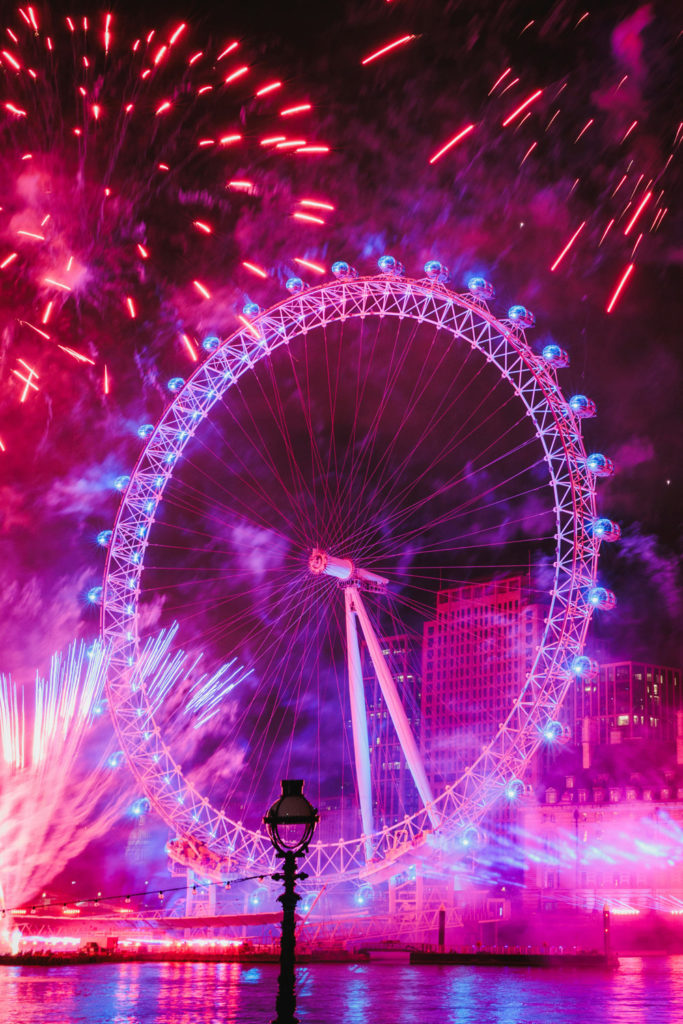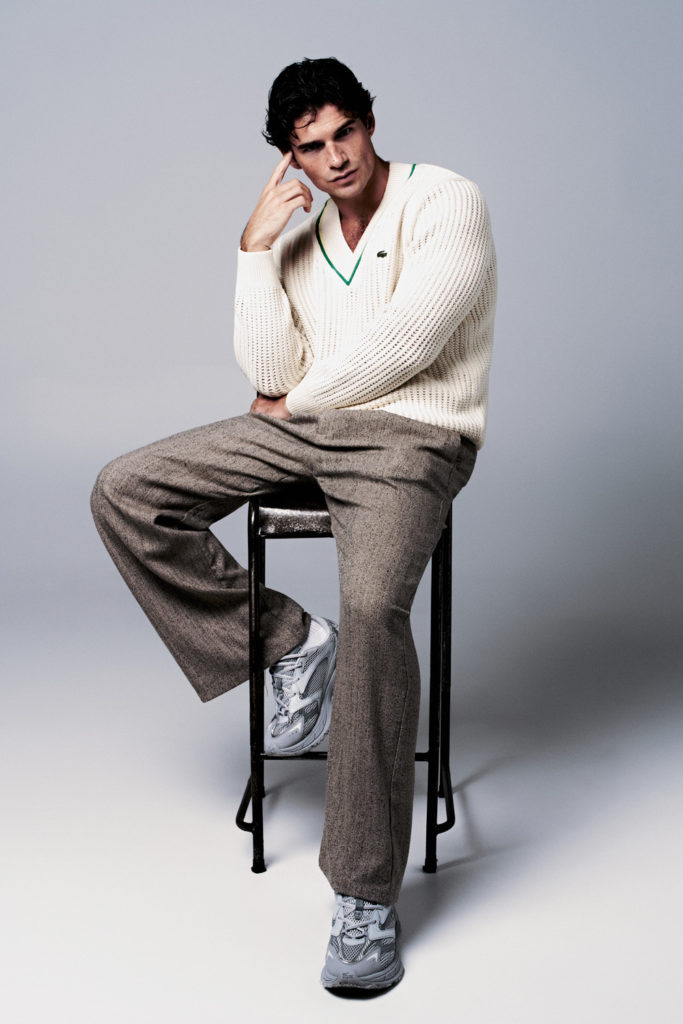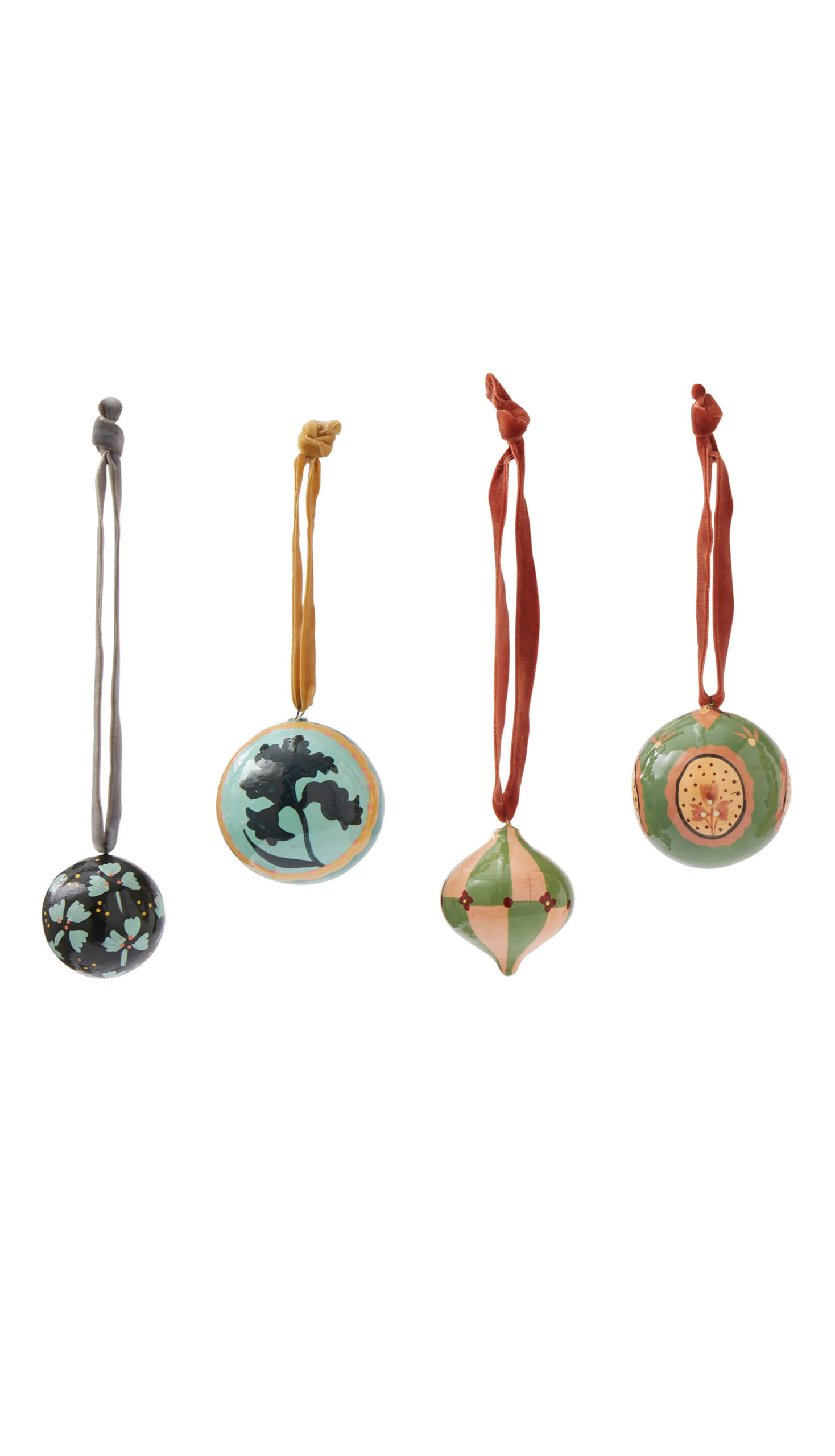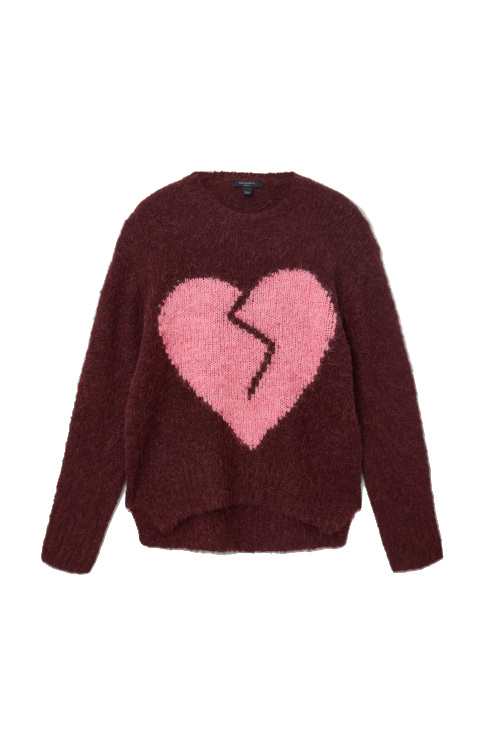Alice Victoria Winslow on Adapting Austen’s Persuasion
By
3 years ago
'I understand people feeling a sense of ownership over the story and it not matching their expectation – but I hope people can take this on its own terms'
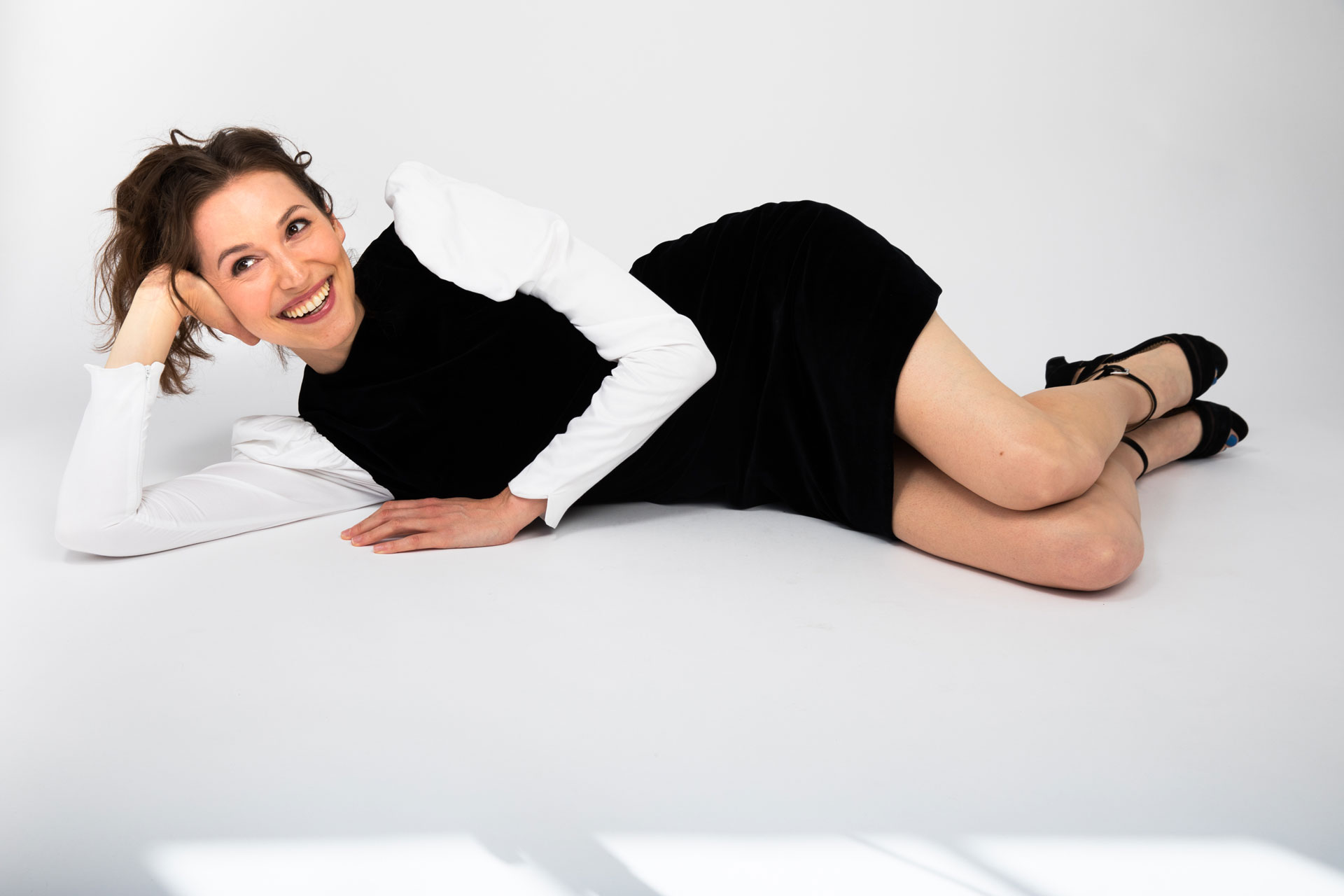
Jane Austen is one of the most adapted authors of all time. From the recent queer retelling of Pride and Prejudice to a Bollywood interpretation and the 1995 classic Clueless, her novels have inspired an endless stream of movies and TV shows. Despite this, there’s always hype about a new addition to the canon. The latest is a Netflix adaptation of Austen’s last novel Persuasion, directed by Carrie Cracknell and co-written by Alice Victoria Winslow and Ron Bass. Here, we speak to Alice about her process of adapting Austen for the screen, and why Persuasion remains such a compelling, relevant story in the 21st century.
Q&A with Persuasion Screenwriter Alice Victoria Winslow
How did you feel taking on an Austen novel?
I was really thrilled. I’ve been a long-time Austen fan and Persuasion in particular has always been my favourite, so I already had a pretty deep relationship with the material and it was a dream to be approached with it.
What are the big challenges with taking on such a beloved novel?
Looking back, I didn’t feel a great amount of pressure at the time to present something that fit within the canon of films that already existed. Now I see that was an expectation that I hadn’t necessarily anticipated. I was really excited to engage with material that has meant a lot to me personally, and to try and make something that was loyal to that and at the same time was fresh and interesting and felt like a new take.
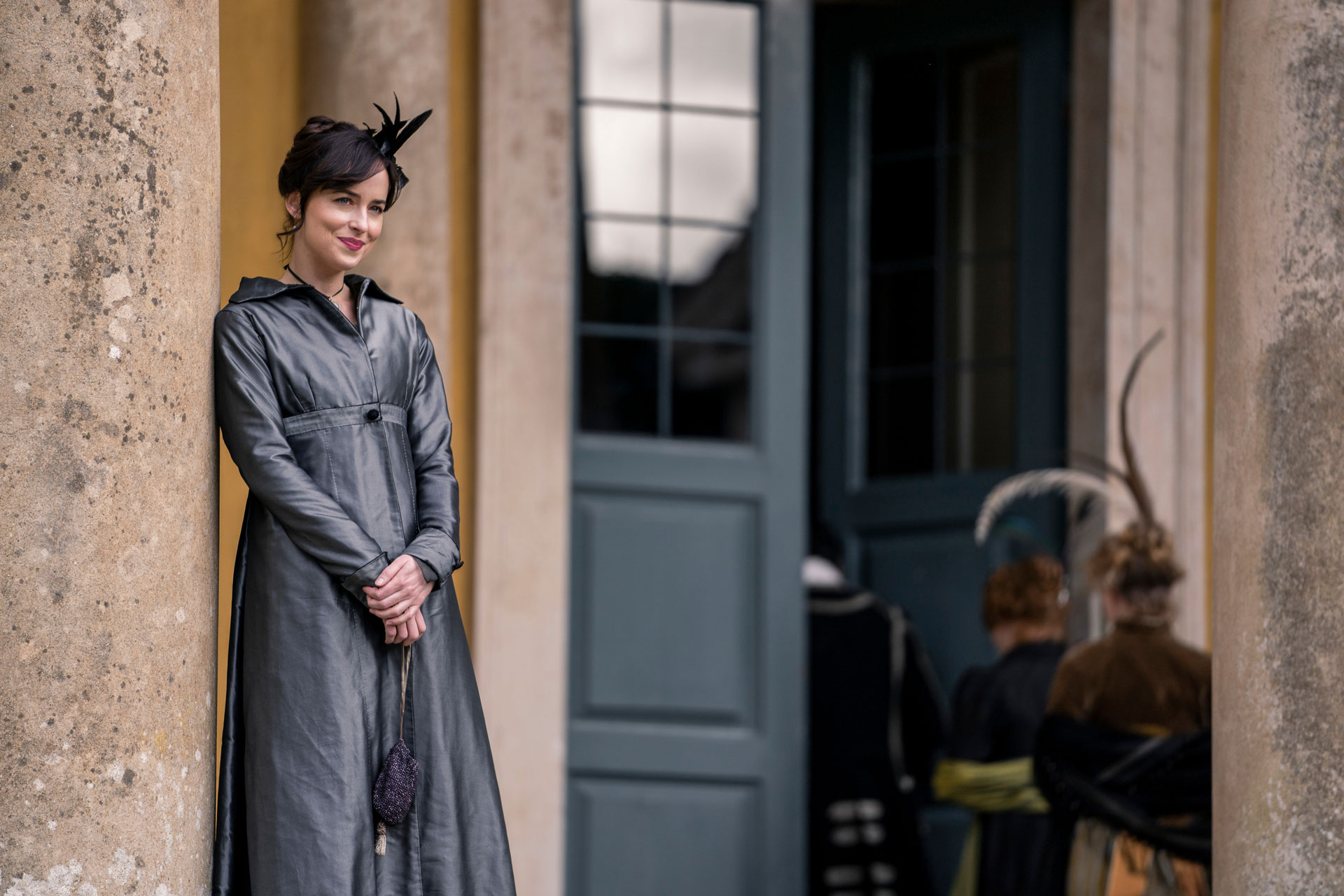
Netflix
How did you balance staying true to Austen’s text and making it relevant for a modern day audience?
It was really important to me to stay loyal structurally to the story – I didn’t want to alter the major plot points. Tonally, Jane Austen is very funny – at base she was a humourist, her books are satire, and she’s a bit of a rebel as well. She’s writing for women at a time when women weren’t writing. She’s proposing that relationships be about love and not economic security. She herself had this playful spirit, and so I wanted to take that same spirit and sense of humour, and bring it into the tone of voice.
The film has lots of modern references and idioms in it. Was it important for you that the story would reach a new audience?
I don’t know that it was as much about reaching a new audience, although I’m grateful if any of this brings more people to the book. I think that was more about being playful with time and reflecting back to the audience just how close we are to these people. When I read the book I feel like I know all of them, they feel like people in my life. In some sense it just felt like a natural homage to the book to write them as people that I would see today.
What did you think of the negative reviews the film received?
On the one hand I’ll say I understand it. I’ve been in a position before where there’s been material I feel incredibly attached to, so I understand people feeling a sense of ownership over the story and it not matching their expectation. I will also say that this isn’t the first time this movie has been made and it won’t be the last; this is not meant to replace anything. Those other adaptations are still out there and they’re great and people should go and enjoy them, and hopefully there will be future ones. So I guess I just hope that people can take this on its own terms and consider it an addition to the Austen verse and not meant to be a replacement for anything.
Persuasion was Austen’s last novel. What do you think is the significance of that?
I think about that a lot. Persuasion has a darkness and a melancholy to it that is absent from the other books, and I think that has a lot to do with being the end of her life. The book is so much about regret and looking back at your life and realising it didn’t necessarily work out the way you thought it would, and grappling with that. I think about how much of that was her at a more mature point in her life, looking back maybe with some regrets of her own. There’s such a maturity and a wisdom to Anne, and I think that’s a product of someone who’s lived a fuller life.

Why do you think Anne is such a relatable character?
She really is incredibly mature and reflective and thoughtful. The things she goes through in the book are things we can all relate to: losing someone, regretting the way a relationship has ended, struggling to get over someone. I also think it’s interesting that she’s invested in this one relationship specifically, but she doesn’t seem terribly concerned with marriage for the sake of marriage. She’s deeply longing for this one specific relationship because it filled her up and meant a lot to her, but she’s not just looking for a man in a way that some of the other heroines are.
How did you choose to interpret and adapt her character?
It was very important to me that she have agency, and not just be a fixture in the marriage plot but have a perspective of her own. Part of breaking the fourth wall was about giving her agency and control over her own story. She’s living within a period in which she doesn’t have many rights or much control over her life, but what if the film gave her the ability to be vocal about her story? That was part of it. And taking on Austen’s spirit of playfulness and satire, and lending that to the voice of Anne so she has a take on what’s going on around her.
How did you find working with Dakota Johnson?
She’s so great. She’s kind of all the things I love about Austen: incredibly playful, incredibly intelligent, and also kind. I loved what she brought to the role, I was impressed with her everyday that I got to see her on set.
Anyone else you particularly loved working with?
In writing the script, Mary slowly became more and more my favourite character, and then once I met Mia (McKenna-Bruce) I was like: she’s perfect.
Why do you think everyone’s so obsessed with Regency dramas at the moment?
It’s partly the great costumes. I have always been drawn to period stories – as I kid I would always tell my parents I was born in the wrong time. I had this sense that that was when I was meant to be living, so maybe other people relate to that.
Image credits:
- Photographer: Jemima Mariott
- Stylist: Harriet Byczok
- Hair and Makeup: Dani Guinsberg @carolhayesmanagement using @ouai haircare and @surratt beauty
READ MORE:
Mia McKenna-Bruce on Playing Mary in Persuasion / Royal & Historical Dramas To Watch Now

